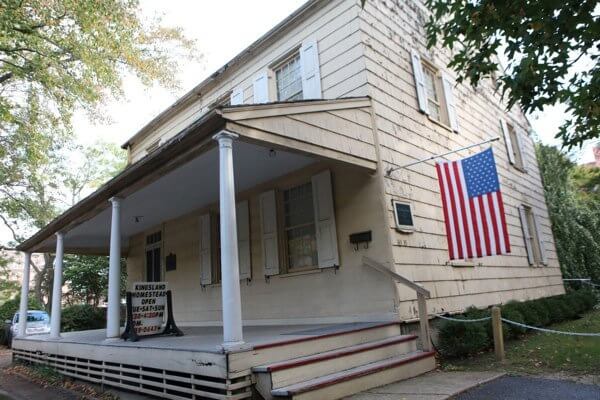By Madina Toure
The Kingsland Homestead is celebrating the 50th anniversary of receiving New York City landmark status. In October 1965, it became the first New York City landmark in Queens eight months after the law went into effect.
Built between 1774 and 1785, the Kingsland Homestead, historic home of the country’s first weeping beech tree, has been located at Weeping Beech Park at 143-35 37th Ave. since 1968 and is the headquarters of the Queens Historical Society.
In 1973, after extensive restoration work, the house was opened to the public as a museum, owned and operated by the historical society. Its rooms are used for exhibitions, a meeting place and as an archive and library.
The 1964/1965 New York World’s Fair gave Kingsland Homestead more publicity, said Richard Hourahan, Queens Historical Society’s curator and collections manager.
“Almost from the commencement of the landmark, it was landmarked and there was an attempt to save it and a successful one,” Hourahan said.
From 1965 to 1968, the Kingsland Preservation Committee, an ad hoc organization primarily based in Flushing, worked to raise money to prevent Kingsland Homestead from being demolished by a developer.
They were then able to reach an agreement with the city Parks Department to transfer Kingsland Homestead to park property at Weeping Beech Park from 155th Street and Roosevelt Avenue. It was previously located at 158th Street and Northern Boulevard.
One of the terms of the Parks Department agreement was that the park site had to be occupied by a not-for-profit for the public good.
The preservation committee felt its mission, which was to keep Kingsland Homestead from being demolished, was accomplished.
Since some members of the committee wanted to stay on, the committee merged with the Queens Historical Society, with the historical society officially coming to fruition in 1968 .
After forming in 1968, the first five years of the historical society’s existence centered largely on Kingsland Homestead and the immediate area but the organization has now broadened its focus to other parts of Queens.
Within 30 days of the Kingsland Homestead receiving landmark status, the Immigration and Nationality Act of 1965, also known as the Hart-Celler Act, was passed. The act phased out the national origins quota system and created a new immigration policy that sought to reunite immigrant families and bring skilled labor to the United States.
Hourahan remarked the coincidence of the property becoming a landmark just as the borough, the city and the country were starting to undergo population changes.
He said that 1.1 million, or about 49 percent of the 2.3 million people living in the borough, are foreign-born residents. He said immigration and changing populations was not a problem “intrinsically” for the historical society and that the society made sure to go all over Queens to address it.
“As far as the impact on society of 50 years of change, I think the society has been right there balancing its requirements,” he said. “Its mission is to serve 2.3 million people.”
Reach reporter Madina Toure by e-mail at mtour



































